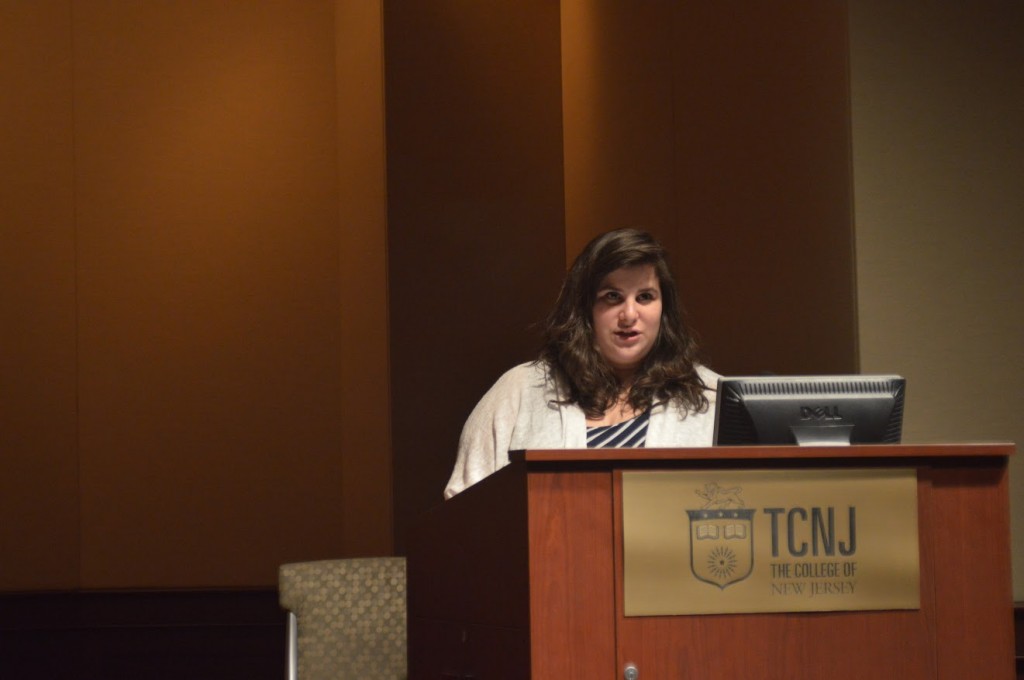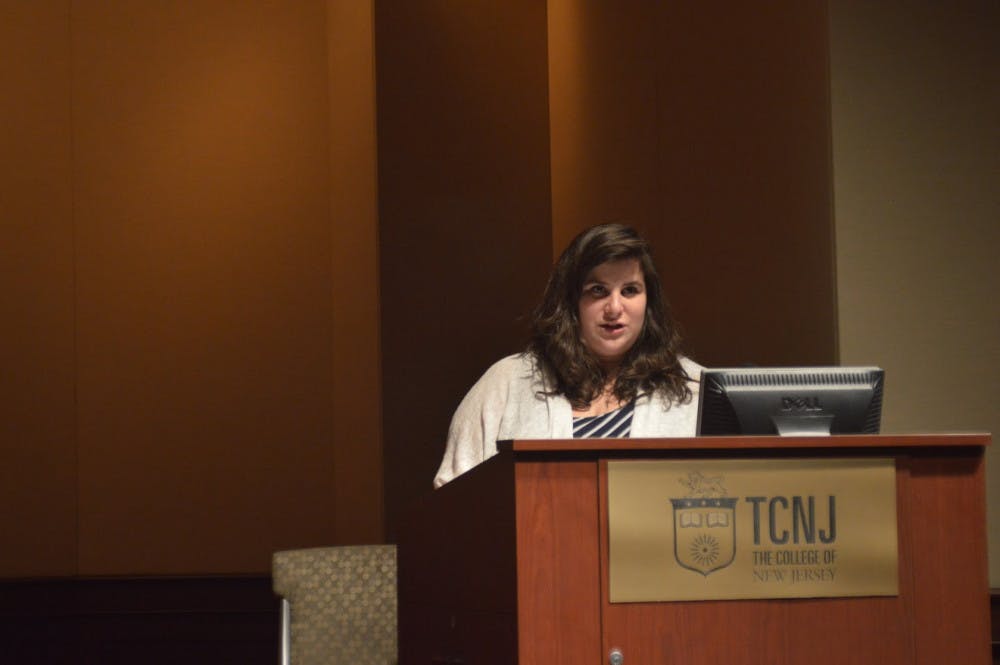Kelly Corbett
Staff Writer
“Warning: Reflections in this mirror may be distorted by socially constructed ideas of beauty,” illuminated the screen of the Library Auditorium on Tuesday, March 3, as students gathered for the National Eating Disorder Awareness monologues hosted by CAPS Peer Educators.
Other messages such as “don’t weigh your self-esteem,” and “25 percent of people who suffer with an eating disorder are male,” also flashed on the screen.
Six brave speakers took to the stage to tell the stories of their battles with eating disorders, as they were in a safe zone and surrounded by others who could relate.
While some speakers expressed their struggles with obsessive calorie counting, others suffered with consistently growling tummies, or trying to purge themselves of this evil monster that had taken over their mind.
All participants spoke of how eating disorders are in fact mental illnesses.
Most of the speakers confessed to first encountering their disorders in high school or even middle school, but the stress of juggling so many tasks in college proved to be a trigger for their eating disorders to resurface.
One speaker touched on how she didn’t accept her disorder right away.
“I ignored it like if you had a wound on your arm and covered it with a Band-Aid,” she said. However, “It never went away, you can’t hide it away.”
While some of the speakers chronologically told their story, other speakers wrote letters to their eating disorders.
In a letter titled “Dear Eating Disorder,” one speaker expressed her anger.
“I’m angry that instead of memorizing SAT words, I memorized calories,” she said. “I’m angry I missed junior prom because I was stuck in a hospital bed,” and “I’m angry you destroyed my body.”
Besides shedding a light on their struggles, the speakers also reflected on what they learned throughout their journeys.
“I’m a hell of a lot more empathetic, and a hell of a lot stronger because of it,” revealed one speaker.
Lauren Plawker, a sophomore clinical psychology major, spoke of her struggle with her eating disorder and emphasized the importance of kindness, for you never know what others may be battling. In light of Plato, she quoted, “Be kind, for everyone you meet is fighting a hard battle.”

Finally, another speaker found safety and comfort by surrounding herself with positive people, such as her sorority sisters.
Plawker along with Derek Giannone, a senior clinical psychology major, founded The College’s Student Alliance to Facilitate Empathy (TCNJ SAFE).
SAFE, which started meeting in Fall 2014, meets weekly and provides a safe environment for students to share and receive support from their peers.
All those attending the meetings are required to sign a confidentiality agreement.
No matter what a student may be dealing with, the College is here to help.
Counseling and Psychological Services (CAPS), the sponsor of the night, also works with students who may be struggling. They offer a variety of counseling services, in groups or individual sessions, staffed by a team composed of licensed mental health professionals and interns. These services are free and no record of counseling appears on student’s permanent academic record.
The night came to an end by presenting each of the speakers with a bouquet of flowers. Not only had the speakers shared their stories but they had promoted a strong feeling of self-love in the room, a key component of NEDA week.







